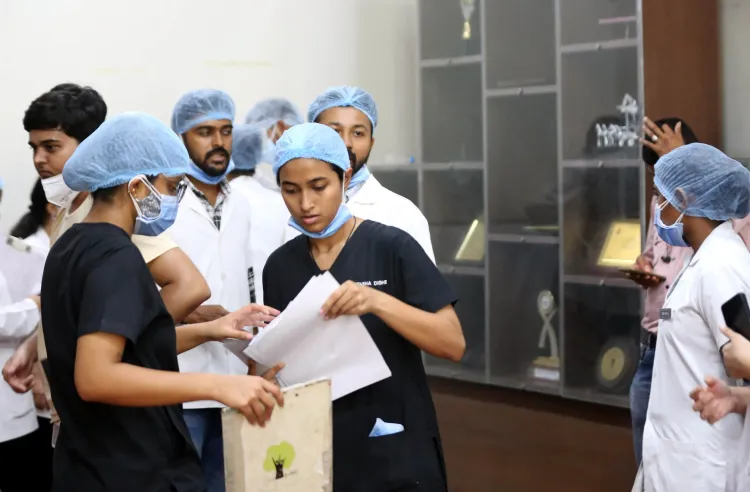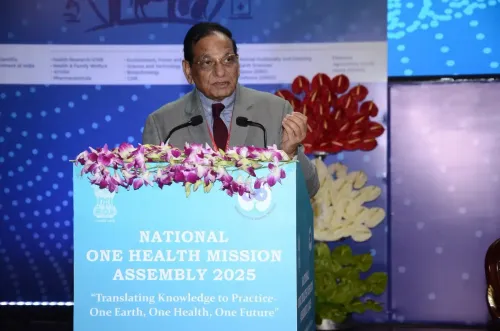What Actions is the Govt Taking Against Ragging at Gandhinagar Medical College?

Synopsis
Key Takeaways
- Gujarat government suspends students involved in ragging.
- Zero-tolerance policy on ragging emphasized.
- Ragging can severely impact students' mental health.
- Educational institutions must strengthen monitoring mechanisms.
- Legal consequences for ragging under UGC regulations.
Ahmedabad, Nov 24 (NationPress) The government of Gujarat has implemented stringent measures following a serious incident of ragging at a medical institution in Gandhinagar. This resulted in the suspension of seven third-year students for two years, alongside several second-year students facing a six-month suspension.
According to State Medical Education Minister Praful Pansheriya, this disciplinary action was prompted by a formal complaint from the hostel dean, who reported the harassment endured by first-year students.
The dean swiftly examined CCTV footage, which validated that the third-year students, in collaboration with second-year students, had engaged in mental harassment and inappropriate conduct towards their juniors.
As a result of these findings, the government promptly enforced suspensions and issued serious warnings to all involved, emphasizing that such behavior is unacceptable in an establishment training future medical professionals.
Minister Pansheriya addressed the media, urging students to maintain their dignity and humanity, noting that they are pursuing a career grounded in compassion and ethical obligations. He stated, “You come here to fulfill your parents’ aspirations. Inflicting pain or distress on others is neither appropriate nor justified. To be a respected physician, humanity must take precedence.”
The minister also warned that recurrence of similar incidents anywhere in the state would lead to immediate action, potentially endangering the academic futures of the students involved.
He pointed out that ragging frequently drives vulnerable students into severe distress and urged the youth—particularly those aged 18 to 20—to act with maturity and empathy. “Many individuals at this age lack emotional resilience. Your actions could cost someone their life or jeopardize your own future,” he cautioned.
The government reiterated its zero-tolerance stance on ragging and instructed all educational institutions to enhance monitoring mechanisms to avert such incidents.
In India, ragging is strictly prohibited under the UGC Regulations on Curbing the Menace of Ragging in Higher Educational Institutions, 2009, which classifies it as a criminal offense.
The regulations outlaw any form of physical or mental abuse, bullying, intimidation, humiliation, or harassment inflicted by senior students upon juniors, whether on or off-campus.
Institutions are mandated to establish anti-ragging committees and squads, file FIRs for confirmed incidents, and ensure 24/7 helplines, affidavits from students, along with stringent monitoring in hostels and common areas.
Penalties can range from suspension, rustication, and expulsion to imprisonment and fines, depending on the offense's severity. Colleges that neglect to act may also face penalties, including loss of grants or affiliation, underscoring India’s firm stance against ragging.









